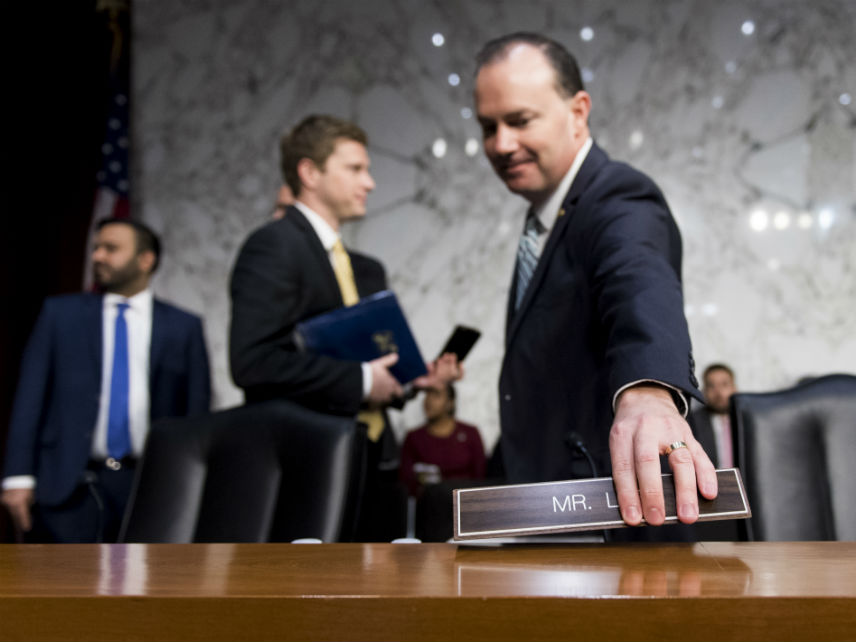Senators Push To Defund Jeff Sessions' Civil Asset Forfeiture Expansion
The House passed amendments this fall blocking Jeff Sessions' asset forfeiture directive. Now senators want to make it stick.

A bipartisan group of senators wants to defund Attorney General Jeff Sessions' expansion of the Justice Department's civil asset forfeiture program, following similar efforts by libertarian-leaning and progressive members of the House earlier this year.
Sessions announced in July that he was scrapping a 2015 directive by former Attorney General Eric Holder that severely curtailed when federal authorities could "adopt" asset forfeiture cases from local and state authorities. Such adoptions, civil rights group said, allowed local police to skirt stricter state forfeiture laws by taking their cases to federal court.
In September, the Republican-led House of Representatives passed several amendments to a large appropriations bill that would prohibit the Justice Department from using any funds to enact Sessions' directive, essentially using Congress' power of the purse to block it from going into effect.
In a letter to Sen. Richard Shelby (R-Ala.), one of the lawmakers hammering out the difference between the House and Senate versions of the appropriations bill, Sens. Rand Paul (R-Ky.), Mike Lee (R-Utah), Angus King (I-Vt.), Mike Crapo (R-Idaho), Jeff Merkley (D-Ore.), and Tom Udall (D-N.M.) pushed to include at least one of the amendments in the final version.
"Adoptive forfeiture and equitable sharing are particularly egregious elements of civil asset forfeiture because they not only violate due process but also attack principles of federalism," the senators wrote. "DOJ's reinstated policy allows state law enforcement officers to circumvent state limitations on civil forfeiture by turning seized property over to federal officials for forfeiture in exchange for up to 80 percent of the proceeds of the property. This perversely incentivizes local law enforcement to confiscate suspect property even where state laws forbid the practice."
Shelby's office did not immediately return a request for comment.
Asset forfeiture—a practice that allows police to seize property suspected of being connected to criminal activity, even when the owner is not charged with a crime—has come under criticism in recent years from lawmakers and advocacy groups across the political spectrum.
Police groups and prosecutors, as well as law-and-order conservatives like Sessions, argue it is an essential tool to disrupt organized crime by cutting off illicit proceeds. Civil liberties advocates say it leaves far too few protections for property owners and creates perverse profit incentives for law enforcement.
A Reason investigation earlier this year showed asset forfeiture in Chicago primarily hit the city's poor, minority neighborhoods. An investigation by the Nevada Policy Research Institute in Las Vegas had similar findings.

Show Comments (16)